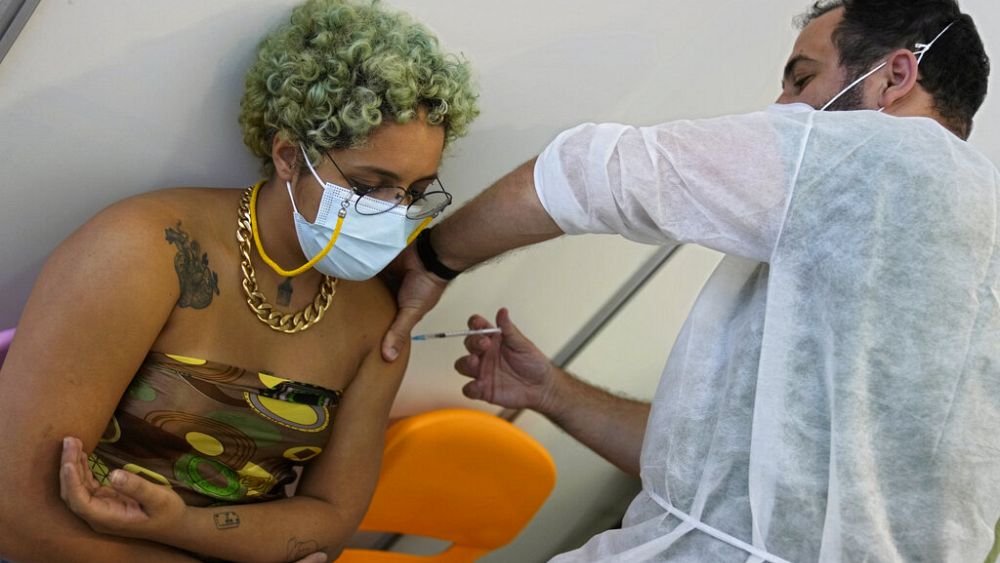
Portugal is now the country with the world’s highest vaccination rate, according to figures from Our World In Data.
About 84% of the country’s 10.3 million population is now fully vaccinated. This is the highest rate in the world, ahead of the UAE (80.8%) and Singapore (77.3%) and well ahead of the 61.6% for the 27 member states of the European Union.
Portugal’s goal to fully inoculate 85% of its population is now within reach and the country is expected to relax some of the measures imposed to curb the spread of the disease.
Border restrictions are currently in place with only people travelling from EU/EEA member states as well as 20 other countries including the US, Canada, Australia, New Zealand, Japan and Singapore allowed in for non-essential reasons, provided they show proof of vaccination or a negative test. All have to fill in a Passenger Locator Form.
Capacity restrictions are also in place for bars, restaurants, cultural venues and at family events such as weddings and baptisms while a COVID health pass is required to access certain venues, large events, group classes in gyms and restaurants at the weekend and during public holidays.
In tandem with the rising number of jabs, the COVID-19 infection rate and hospitalisations due to the virus have dropped to their lowest for almost 18 months.
On Wednesday, the country recorded 891 new infections and eight deaths. Some 426 people were hospitalised for COVID-19 across the country, compared to 527 a week ago and 621 on September 8.
‘We’ve won a battle’
A lot of the credit for that success is going to one man: Rear Admiral Henrique Gouveia e Melo. The Navy officer has become a household name since taking charge of the vaccine rollout in February, regularly appearing on television to answer public concerns about the vaccination programme.
Gouveia e Melo, 60, confessed that replacing a political appointee who quit after three months amid reports of queue-jumping, was “intimidating.”
The queue-jumping was threatening to undermine public trust in the vaccine rollout. Promised vaccine deliveries weren’t arriving.
Gouveia e Melo did away with Portugal’s initial efforts to piggyback on established vaccination strategies, such as those used for the annual flu jab, which use local, and usually small, public health centres to administer vaccines.
The demands of scale and speed to address COVID-19 called for a very different approach.
Portugal began using large sports halls around the country to set up what Gouveia e Melo calls a “production line”: a reception and processing area, a waiting room, cubicles where jabs are given, and a recovery area.
He used soldiers as guinea pigs at the Lisbon military hospital to figure out how to obtain the quickest flow of people through a building.
A major push came with what he calls a sudden “tsunami” of vaccine deliveries in mid-June, which allowed Portugal to shift up a gear.
“We’ve won a battle,” he said. “I don’t know if we’ve won the war against the virus. This is a world war.”
Other countries, which Gouveia e Melo declined to name because their requests are not public, have approached Portugal to ask how it accomplished the vaccine rollout.
The Portuguese are traditionally well-disposed toward jabs, which has eased the rollout.
The vaccination rate against measles, mumps and rubella, for example, is 95% — one of the European Union’s highest — and there is no significant anti-vaccination movement.